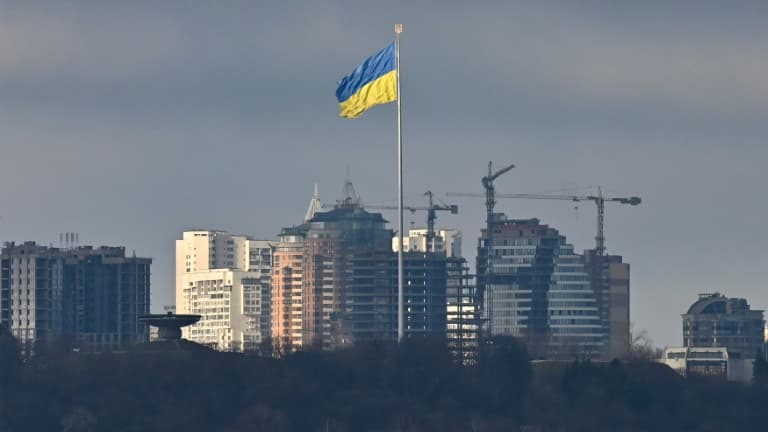
Putin had to change his plans in the face of the Ukrainian resistance
While the balance of power seemed completely unbalanced in favor of the Russian army in Ukraine, for four days the Ukrainian resistance was fierce, slowing the advance of enemy forces into the country.
Russia is making progress on several fronts, on the fourth day of Vladimir Putin’s invasion of Ukraine. The authorities of the city of Kharkiv indicated, on Sunday morning, a breakthrough of the Russian army in its center. Vladimir Putin’s forces will besiege two major cities in the south of the country, Kherson and Berdyansk, according to the Russian military. But for now, the Ukrainian army is “continuing to resist, holding firm and multiplying encouraging messages”, assures Alexander Koyre, a correspondent in Kiev.
Symbolically, despite the seemingly favorable balance of power for the Russian military – the country being the world’s second armed force – Ukraine’s capital did not fall into Russian hands on Saturday. Forcing Vladimir Putin to demand his soldiers expand the offensive.
“It clearly reflects that Moscow is not succeeding in capturing Kiev, and that plans need to be revised and the number of troops increased. And the Ukrainian defense is well organized and knows how to coordinate its efforts. This is a huge setback, even if Russia maintains a favorable balance of forces,” explains General Jerome Belistrandy. BFMTV, Defense Adviser.
Ukrainian resistance can also be observed on the Kharkiv side. If a column arrives in the city center on Sunday, it will take “four days to travel 30 kilometers, as Kharkiv is close to the border, which proves that the Ukrainians are resisting,” he added Sunday morning on board the ship. A few hours later, by the way, the local governor Oleg Senegubov officially announced that the second city of Ukraine was still under the control of government forces.
Solidarity between civil society and the military
It is clear that the slow progress of Russian soldiers in Ukraine was not part of the Russian generals’ “plan,” asserts Patrick Seuss, a columnist specializing in international politics. “They will have to talk to the Ukrainians and deal with the losses,” he added. He offers, as a start to the interpretation, the presence of many young recruits among the 190,000 Russians deployed in Ukraine, which is “quite different from the army of professionals or people who decided to take up arms, showing anger and hatred.” According to him, “it can make a difference.”
Since the last conflict in 2014, the Ukrainian army is no longer the same. Sophie Lambrushini, a specialist in contemporary Russia and Ukraine, explained that “the information that comes to us from the field clearly shows the significant modernization and improvement of equipment and training of the Ukrainian army since 2014,” on France Inter. These armed forces have benefited from many civilians since the issuance of the general mobilization decree.
“There is solidarity between civil society and the army. After 2014, Ukrainian civil society organized itself. This mobilization allowed for a very rapid organization in the current context,” continued the specialist.
Trouble in conflict?
For General Jerome Belistrandi, this Ukrainian resistance is still organized in Kiev, Kharkiv or in the south of the country, towards the Crimea, means that the “chain of command is working”. He noted that “this resistance makes it possible to organize the defensive movement, and therefore the Russian progress is important, but not decisive at the moment.”
The conflict could now linger for “many years”, politicians and observers fear, as British Foreign Secretary Liz Truss summarized on Sunday. This could last “for several years because we know Russia has large forces,” she said, stressing the Ukrainians’ determination to “fight” to defend their “sovereignty and territorial integrity.”
“I urge the government not to escalate the conflict, but we must be ready for Russia to seek worse weapons,” she feared, which could be “extremely destructive.”
Vladimir Putin’s announcement of putting the Russian army’s “deterrence force” on alert, including the nuclear component, comes with the British minister’s concerns. But the organization of talks between Ukraine and Russia on the border with Belarus gives hope for another turn in the conflict.

“Unapologetic pop culture trailblazer. Freelance troublemaker. Food guru. Alcohol fanatic. Gamer. Explorer. Thinker.”
